Let's talk about hair loss. It's not something I ever expected dealing with at 27 years old. Balding was not a thing I ever anticipated having to figure out . Thin, patchy hair was not on my charted life path. So what happened?
Anxiety. Stress. In short, PhD panic...
My Hair Loss Story:
This is a story I have been hesitant to share, and I am embarrassed to put this out there even though I know I shouldn't feel that way. So do bear with me today as this post will be slightly different from my usual. If you don't want the backstory, you can skip down to the beauty review and haircare tips, but if you do stick around to read, thank you.
I know I have mentioned some of my personal life before, but I have definitely kept most of my day to day reality to a minimum here on the blog, and have almost completely skipped over talking about my mental health. I've struggled with what I now recognize as anxiety for as long as I can remember, along with some other things, and I also have ADHD. This makes 'normal' activities hard even on the best days, but it is something I can usually manage. I can function, even if I'm a ball of stress constantly overthinking and imagining the worst outcome as I go about my business.
If you know me, you might not even realize that I am in a constant fight with my brain. I try to focus my energy into coming across happy, energetic, and competent. Often that just isn't how I'm feeling (though I'm pleased to say it is becoming more regularly true!).
Then cue the start of my PhD.
A PhD is hard. But a PhD with ADHD is like finding a needle in a haystack while pigeons swoop, your shoes are on fire, a storm rages, & you're blindfolded with one hand tied behind your back. Finding motivation for most things is difficult. Making PhD material stay interesting enough to hold attention for 3-4 years is near impossible. I know I mentioned this on Twitter previously, but my ADHD affects my memory big time. I struggle to remember what I wrote, read, planned, or edited the day before, meaning I have to re-read huge sections before starting to work each new session. When I'm writing (or speaking) I get stuck on words because vocabulary recall is an issue. I can almost taste the word, can sense what it starts with, but can't form it. It's embarrassing to admit that as a PhD candidate I always have a Thesaurus loaded up on my screen just so I can find the word I need.
I think if that was the only issue facing me with my work I would have been able to push through it as I had with everything else. However, I had a terrible time of things for the majority of my research period, as I had pretty much zero supervision. There was no communication, no interest in my project, no support, no useful feedback... It was so demoralizing, and I felt totally alone, unappreciated, and like I was just taken on so the university would get the extra money from my international tuition fees. I finally requested a new supervisor after three years of no improvement, and while things got better for a time, it did crumble again in the time when I needed the most guidance. Plus, a new supervisor for the final twelve months of my PhD does not make up for the time I lost being stressed, lost, and frustrated to the point where I wan't getting any work done.
My PhD deadline was end of September 2019. In August I still had about 40,000 words to write (two chapters and my conclusion), plus all the formatting, final edits, and binding together of the book. I hardly left the house (let alone the sofa where I was holed up writing) for 30 days. To put it lightly, it was not a great time, and I don't think I would have finished without Tim taking up the role of supervisor, reading through my entire project, offering feedback, proofreading, and just generally being a great guy.
So how does all of this connect to my hair loss? Well, for women there are many triggers that can cause mass fallout and breakage, including genetics, hormone inbalance (from pregnancy, PCOS, medications), illness (like thyroid disorders, vitamin/mineral deficiency), and - you guessed it - high levels of stress.
There are four main types of hair loss associated with excessive stress: "Telogen Effluvium (excessive daily hair shedding), Alopecia Areata (hair loss in areas), Trichotillomania (hair pulling) and Androgenic Alopecia (hair thinning)." I ended up with three of these happening simultaneously, resulting in a massive change in texture, appearance, and overall health of my hair.
I was pretty aware of the toll my stress was taking on my mind, but it wasn't until my family saw me and were shocked at the state of my hair that I realized just how much impact my increased anxiety levels had on my physical self. They only see me once a year usually, so the transformation that had occurred in the twelve months I had last visited was drastic.
My hair had started falling out en-mass, not shedding a handful of strands at a time like normal, but in huge quantities. I could have made a teddy bear each week with the amount of hair that was coming off of my head. It went from fine to thin to sparse, and I had bald spots appearing on the right top side of my scalp. My hair felt disgusting, ultra-dry and like dead grass, it looked lackluster, and it was patchy to say the least. I stopped taking pictures of myself, started worrying about how to wear my hair so I could hide the naked bits on my head, and my confidence definitely took a hit.
Jokes were certainly made during that visit, and I decided I really needed to start to address the damage that had been done, and fast (while I still had hair to rescue).
While there is no quick and simple solution, I have found there are steps to take that really help to make a difference. From changing up your haircare routine to addressing diet and lifestyle choices, little adjustments can help fight back against the hair loss and start to reverse the damage. And while I am no expert, in my experience this is what worked for me...
Transparency Key:
* This post contains affiliate links and gifted products
No matter how I have received a product, whether it has been purchased with my own money, gifted by a brand, been subsidized by a brand, won, gifted by friends/family, or purchased with a gift voucher, my approach is always the same -- honesty, integrity, and highlighting both the good and the bad. You can find more information on Disclosures and Privacy here.
1] Supplements for Hair Loss
Ensuring your daily intake includes all the necessary vitamins and minerals you need to grow and maintain strong, healthy strands is essential in the fight against hair loss. As someone who doesn't eat animals and who has been doing their best to limit animal products altogether, keeping a balanced diet takes a bit of work. I've actually done a great job at increasing my iron levels over the last few years, and have a pretty good variety of foods that includes beans, lentils, chickpeas, seeds, and nuts.What I don't get in food though, I have been taking care to get from other methods. While I do not recommend relying on supplements and taking them in place of a balanced diet, they are incredibly helpful during times where your body clearly is not getting enough of what it needs. So when I decided to try to reverse my stress induced hair loss, I did some digging.
There are three big players when it comes to growth (Vitamin C, B, and E) as well as some vital nutrients that contribute to replenishing, strengthening, and healing hair (including iron, Vitamin A and D, and fatty acids). By taking a multi-vitamin every day, I was giving my body the boost it needed to help create new follicles, promote collagen production, and protect against free radicals.
 |
| whether you opt for a hair specific formula or a multi-vitamin, just be sure it is catered to what you need! |
2] Stress Less
I knew I couldn't get away from the stress, as the PhD just doesn't allow that (and nor does my general anxiety), but I could make efforts to give myself time to just chill out and decompress. So that's what I have been doing!While it seems counterproductive, having space to just do nothing has really helped me de-stress. Sure, I still have all the same work and pressures to come back to when my time out is done, but during those moments I can just put those responsibilities on pause and enjoy myself. Whether it is ten minutes in the morning watching a YouTube video, a full day of catching up on housework and organizing my skincare shelves, or a weekend away with Tim, getting away from thinking about the PhD is critical for my mental health.
And sure, sometimes that leads to intensive periods of writing to meet deadlines, but this is what works best for me. Deciding to just not do any research, not type out my linguistic analyses, or read 300 pages of theory that may or may not prove useful - that's what is best for my wellbeing sometimes, as it gives me a chance to breathe and temporarily check out.
I also find walking to work instead of taking the bus has been a great change to my routine, as the thirty minute commute helps clear my head, gives my body a chance for gentle exercise that it might not otherwise have time for, and gets me outside. Being out in the open air is hugely beneficial, and automatically relieves some of the built up tension - it's definitely a game changer!
 |
| Weekend away to see Of Monsters and Men! |
3] Natural Hair Loss Products
I have been using sulfate free natural treatments for years and years, but I still found that changing up my haircare routine was essential for reversing my hair loss. Avoiding alcohols, harsh foaming agents, and anything that could potentially irritate my scalp or dry out my already distressed hair was a must, so I was having to be much more selective about what I tried out.While I still haven't landed on my holy grail shampoo and conditioner, these are the green goodies that have been helping restore my sad thin brittle locks:
Madara 3 Min Growth-Boost Scalp Treatment- This is the product I think has made the most difference to my hair, and I highly recommend it to anyone who is struggling with hair loss. I used this three times a week, every week, applying to my scalp and paying particular attention to the balding spots. The vegan friendly formula contains caffiene, zinc, B vitamins, and amino acids which all help strengthen and revitalize hair, target thinning and fallout, and supercharge the scalp. The pre-shampoo treatment is pretty thin, and it does not lather up which makes it feel all the more gentle.
This scalp treatment is so easy to use, and I love how quick it is. Products that I have to leave in for ages are ones I don't tend to get on with as I constantly put off applying them due to the commitment. With the Madara 3 Min Growth-Boost formula, I just drizzle it onto the problem areas, massage in, let it sit as I prepare my shower, and then rinse it out! I also find it helps my in-between shampoo days as it leaves my hair looking refreshed and my scalp feeling revitalized.
As for results, well I admit I wasn't expecting much when I first picked this up. I feel like most "hair growth" products just do not deliver, and so I was thinking this would be more of a pre-shampoo moisture boost than anything else. But boy was I wrong. I've been using this consistently for going on six months now, and the turnaround has been mind blowing. My hair is like night and day, starting off patchy, weak, unbelievably thin, totally broken, lackluster, and with small balding areas around the right side of my scalp. Five months in, and the top of my head has filled in with so much new growth, my hair overall looks and feels much thicker (though still thin - it's a work in progress!), and my strands are definitely stronger.
I tracked my progress using this, making sure to take the pictures around the same time of day and in the same conditions (after air drying my hair after washing in the shower) and I have to say the pictures speak for themselves:
Along with the Madara 3 Min Growth-Boost Scalp Treatment, I also turned to a few new products in hopes that their targeted formulas would help aid the recovery process. Keep in mind nothing is a miracle worker, but by picking the right combinations of ingredients you can at least reverse some of the damage and give your scalp and hair shafts the care they need to remain strong.
I have been using Evolve for the last month, and while it is not the mildest in terms of foaming agents, I find the Superfood Shine Shampoo has been a lovely way to cleanse my hair from buildup. This is a great way to reset my scalp, something that is key for keeping the follicles unclogged and for stimulating hair growth. The shampoo leaves my hair feeling super soft plus it smells so creamy which is a nice touch.
However, for a gentler approach that I find superb for a regular wash (in my case 2-3 times per week), I have been loving Awake Organics Caffiene + Rosemary Vegan Shampoo. This is plastic free, a hard find in the haircare world I've noticed, and the powder formula is really easy to use, doesn't stress out my hair, and is fab for travel. I recently wrote about this in my Plastic Free Essentials roundup, and I can't help but rave about it some more. The shampoo leaves my hair shiny, soft, and smelling like bright citrus - it's wonderful!
In terms of a heavier duty clarifying treatment (one that I use once per month) I have found the Khadi Shikakai Hydrating Shampoo really effective. This formula contains a blend of ayurvedic herbs like shikakai, bhringraj, and reetha, all which work to reverse fallout and supply sufficient moisture to boost strength. This isn't my favourite smelling product to be totally honest and I do find it leaves my hair slightly flat, but it seriously rids the scalp and strands of all buildup and provides a fresh and shiny new start.
When it comes to conditioners, I am also still searching for that HG creation. I was using the Clean Conditioner in Golden Citrus from Tabitha James Kraan which I really enjoyed, but I ran out a while back and just haven't come around to repurchasing again yet. While this is not the most intensive conditioner, I find it brilliant as a daily treatment as it does not leave my hair feeling weighed down or looking greasy. Instead, it Since this bottle ran out, I started trying the Rahua Classic Conditioner from the Jet Setter Kit. While I adore the smell of this, I am not yet convinced this is 'the one' as it is a bit pricey... We'll see how my hair responds with this mini bottle before I make any final decisions.
I have had much better luck choosing leave in treatments, tonics, and masks that help combat hair loss than I have with shampoos and conditioners. Restoring my brittle hair back to its healthy state and stimulating new growth has required finding the right balance between moisture, hydration, and protein, so I have been taking the necessary steps to give my hair all the TLC it needs. By introducing tonics that balance pH levels and nourish the scalp, doing a deep condition once a week to provide mega moisture, stimulating blood flow with hot oil treatments (which in turn encourages growth), and adding a few daily drops of nourishing oils to lock in moisture and heal brittle strands, the hair recovery journey will be well on its way!
I also want to make it very clear that you do not have to pay tons of money to get results. I've been using a mix of "luxury" items at a high price point as well as "budget" formulas that are super affordable, and I have tried and true favourites from both. It's not about the cost, but the ingredients and the craft that goes into creating the treatment. When you are selecting natural products to treat hair loss, just be sure to check the label for harsh substances like alcohols and sulfates, and when using them remember to regularly refresh your scalp so there is no buildup. If you go too long between washes the follicle can become clogged which can actually exaggerate hair loss, so keep in mind what you are using and be sure to be kind to your head and hair!
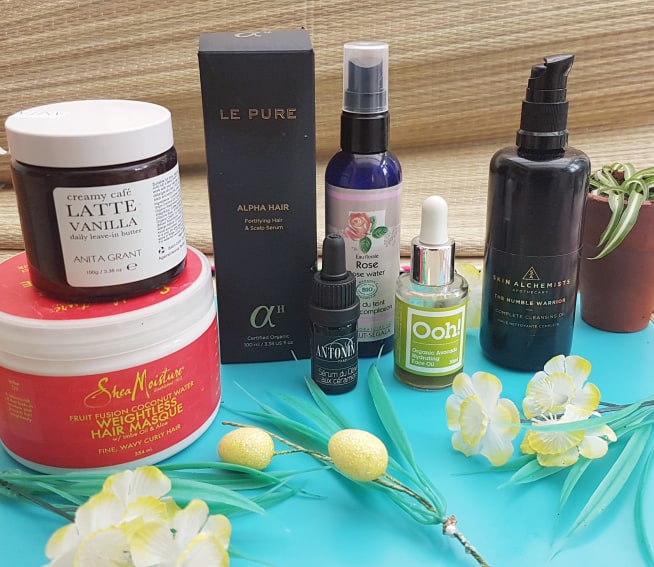 |
| my current hair loss / hair growth products |
4] Trim Your Hair
Having long hair is something I really like, but keeping up with the maintenance is a key step in combating hair loss. Did you know that by not trimming your hair you could actually be doing more harm than good??By not cutting off those split ends, your hair can actually become so broken that those precious locks will have to be chopped due to the damage to the shaft. You cannot repair split ends, not matter what you read on the internet, so when they start to appear it is important that you address them quickly and effectively so the issue does not spread all the way up the length of the strand.
 |
| pre PhD hair, 2014/15 |
 |
| height of hair loss during PhD - balls of hair each day |
Of course there are other things that have helped me keep on top of the thinning and fallout - drinking much more water than usual, being super aware of the air conditions so I can protect against additional damage caused by dryness (central heating is a big issue and my hair needs more love!), and taking extra care after showering so I don't pull at my hair and create stress on the strands... All of this has helped in my fight against the stress induced hair loss.
While my hair is not 100% back to how it was, it is definitely seeing huge improvements. The bald patches have filled in loads and are way less noticeable, and overall my hair is looking a little bit fuller. It is much softer (thank goodness it no longer feels like dead grass!), there is far less breakage, and not as much fallout. This hasn't been a quick journey, and I think it will still be at least another year before it is fully


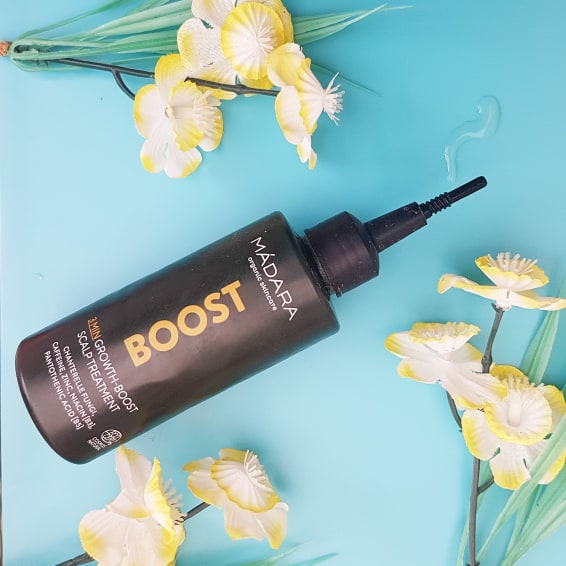
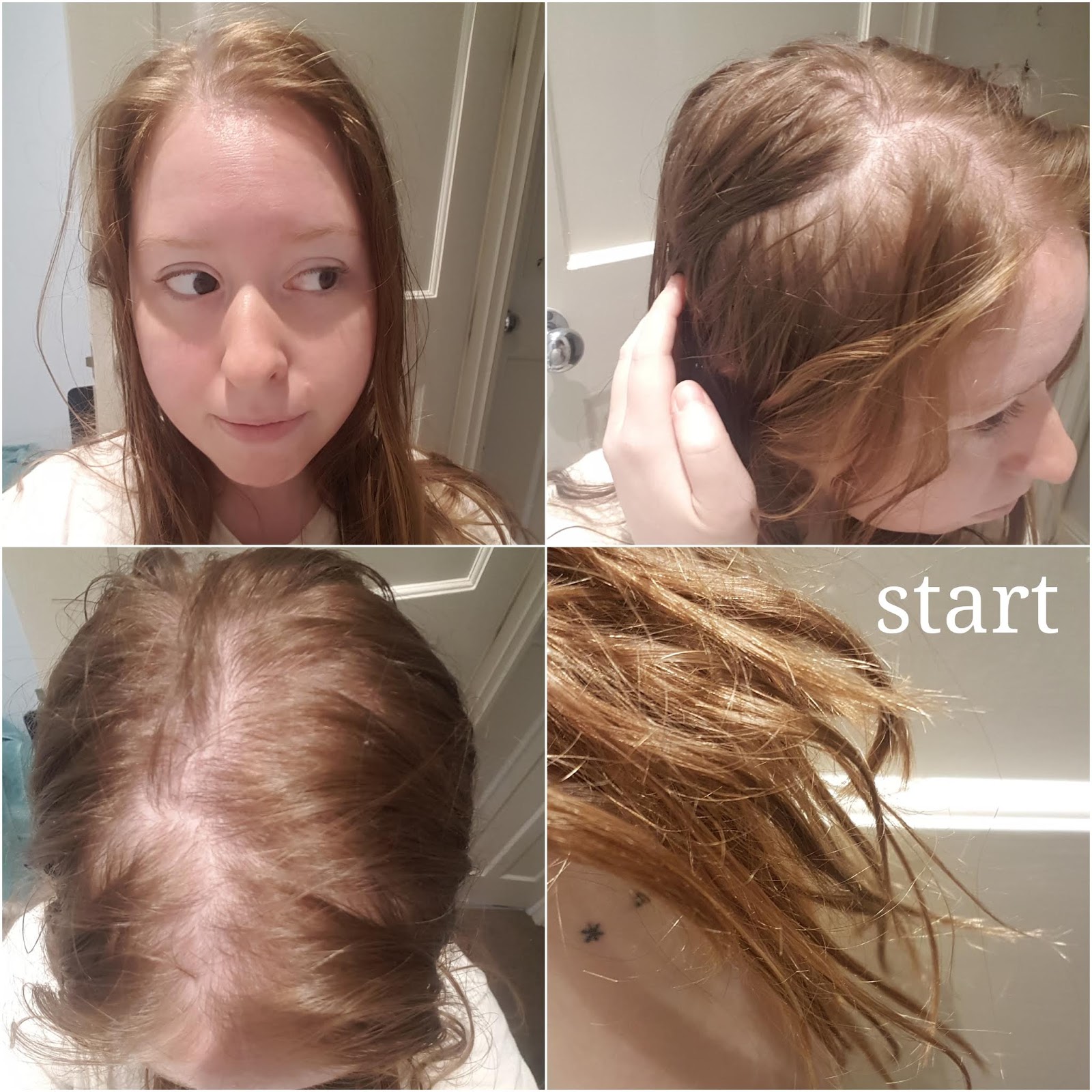


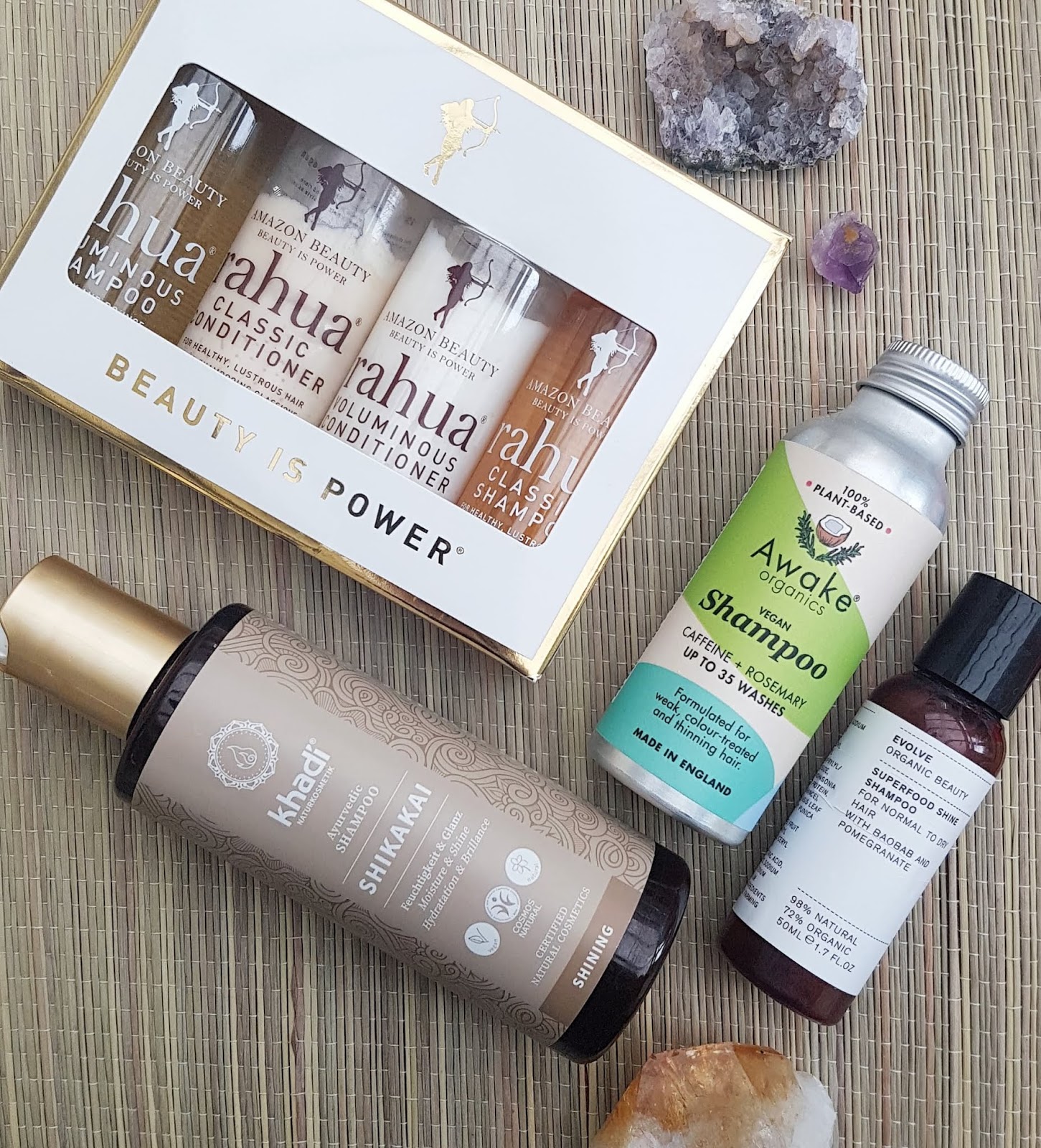











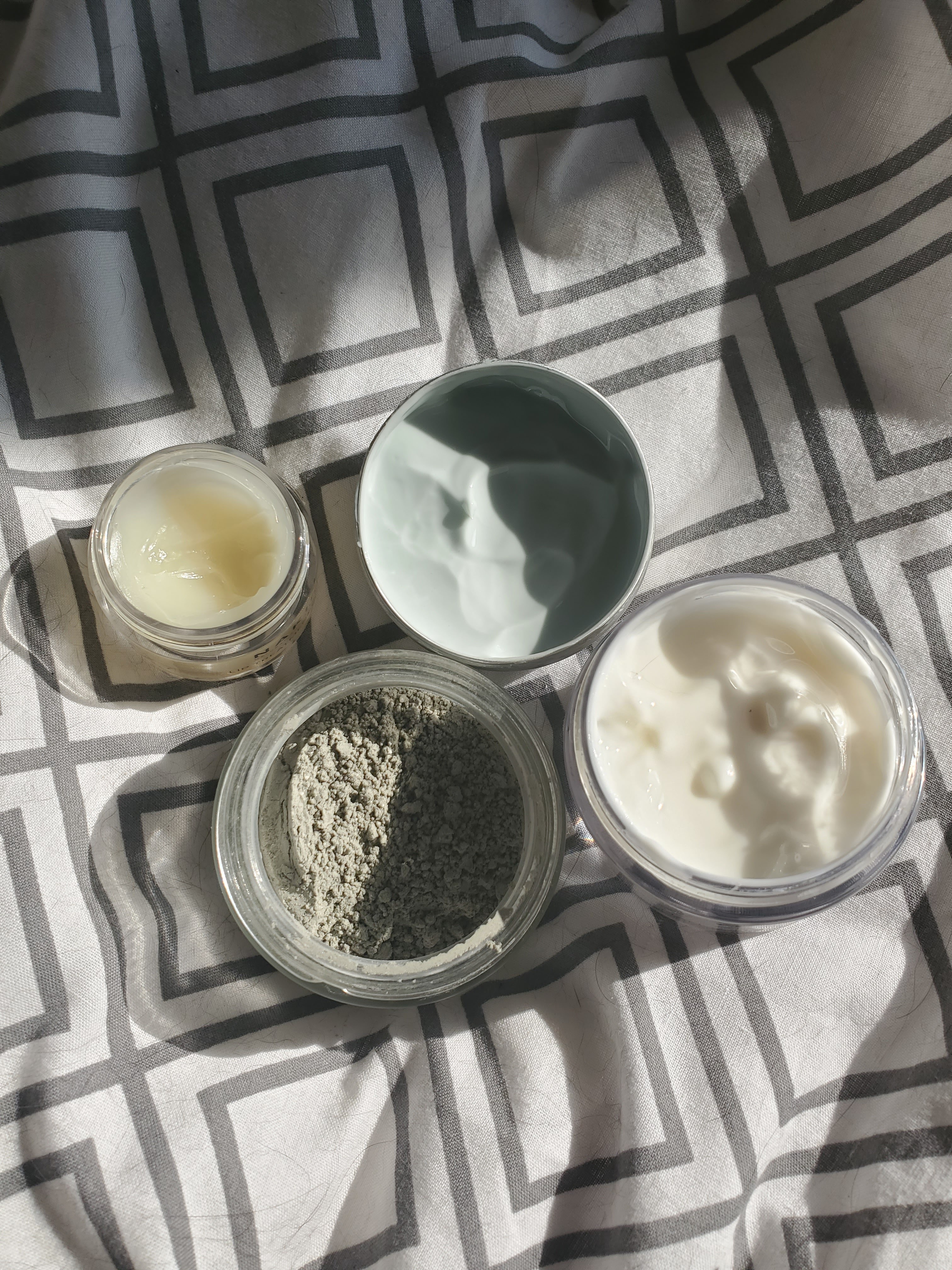
It is a journey indeed. I have been there twice post giving birth, so I feel you! I find it is more to do with fixing underlying issues, like hormone imbalances or thyroid, etc; less with products - I didn't find any products working wonders if I am honest x
ReplyDeleteBig yes for the right supplements and a bit of zen. It seems like you are on the right path for you x
While this is not the most intensive conditioner, I find it brilliant as a daily treatment as it does not leave my hair feeling weighed down or looking greasy. Worldwide B2B Marketplace
ReplyDelete